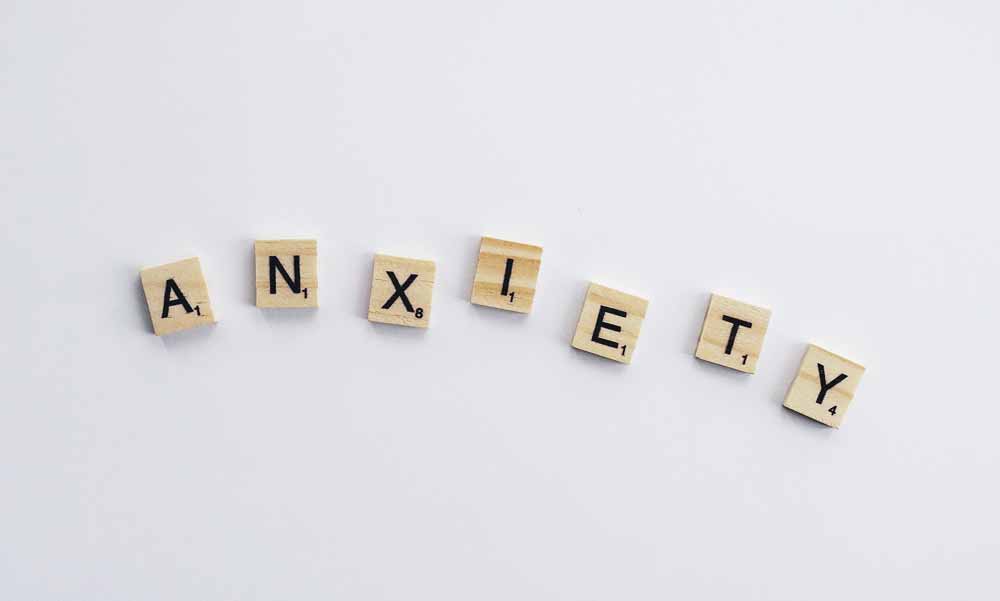I remember watching a video on social media of a woman mocking how she imagines her anxiety. There is a scene in the kitchen in which she is performing a normal task such as putting away dishes, while a darker, more ominous version of herself is lingering in the background. As she thinks about her upcoming day, her anxiety is simultaneously chiming in with remarks of what could possibly go wrong. I couldn’t help but laugh. But in reality, anxiety is no joke. If you’ve struggled with anxiety, then you know how uncomfortable and sometimes paralyzing it can feel.
For me, anxiety has been a familiar experience. Honestly, there were times when it was like a faithful friend who was merely looking out for me. It made sense. I mean, possibilities are endless, right? So, I felt inclined to consider every “what if” scenario, because somehow that made me feel more in control and prepared to handle whatever curveball life decided to throw.
It was exhausting…
The truth is, fear, which is at the root of anxiety, does serve a purpose. Our fear response is trying to keep us safe, and its job is to let us know when potential harm is coming our way. We need fear. We need it to speak up and let us know when we are in danger. If I’m walking into a busy road with oncoming traffic, then you bet I want fear to speak up and tell me to get out of the way!
Fear becomes a problem when it is holding us back or disabling us from the unknowns when there is no real eminent danger.
We have developed fears that are triggered by experiences representing emotional pain. Our anxieties can also show up as the fear of failure, rejection, abandonment, or not being good enough. Anxious thoughts that arise about similar painful experiences cause people to run for the hills, fight some imaginary beast, or freeze like a deer.
A new opportunity? Anxiety tells me that I may blow it. Fear of failure. Nope. Bye! A new relationship? Anxiety tells me that I’m not good enough, everyone has betrayed me, and true love isn’t possible for me. Why bother. See ya. A new experience that may be fulfilling? Well, my anxiety has already given me every worst-case scenario, so you know it’s better just stay at home – safe and sound. Nothing bad can happen then.
Insert analysis paralysis.
If you’ve struggled with anxiety, I don’t know what your specific fears are. I can tell you that breathing, guided imagery, heart-tapping, and mindfulness exercises can be useful in decreasing anxious thoughts about perceived fearful situations of the future. These techniques help to calm the nervous system while enabling the brain to logically, rather than emotionally, assess a situation. Adopting skills that maintain balance between logic and emotion is essential to finding well-being in everyday life.
With that, there is also a difference between paranoia and intuition. The key to maintaining this delicate balance is searching for evidence and having patience. If your intuition is speaking up, then you can trust that the information that you need will become available to you. Either way, you do not have to make any decision or put yourself in any situation until you’ve gathered enough evidence and information that may give you a “green light” to move forward. What has helped me the most was approaching fear with curiosity rather than attempting to avoid it, shut it down, or distract myself from it. This approach was a total game-changer, because it stopped making fear the enemy. Changing that perspective from enemy to protector helped me have much more compassion and care for that scared part of me.
For instance, imagine the woman in the kitchen facing her fearful counterpart and becoming curious about what she’s afraid of. Then, simply saying “Thank you for looking out for me. I wonder if you could relax and trust me to handle it. I’ve got you.” After all, you can’t transform what you avoid, and it’s never as scary as you think.
By: Christine Snipes, Master’s level therapist





